Digitalization for compliance with the new EU regulation on deforestation-free products
Written by Carolina Pirola and Elisa Criscione
A year after the EU backed the COP26 Glasgow Climate Conference pledge to stop deforestation and land degradation, the European Commission, the European Council and the European Parliament have taken the group’s commitment to forest conservation a step farther with the adoption of a specific deforestation-free products Regulation. Expected to enter into force later this year, the proposed law seeks to reduce the footprint of EU consumption – which, according to FAO estimates, accounts for about 10 percent of the world’s deforestation – by setting up a due diligence requirement to “ensure that a set of key goods placed on the EU market will no longer contribute to deforestation and forest degradation in the EU and elsewhere in the world.” This means that only those suppliers able to guarantee that their products were not obtained from deforested or degraded land will be able to export to EU companies. Coffee, among other food products, is part of this Regulation.
While this agreement is key for conservation and can potentially have significant social and economic benefits for communities whose livelihoods depend on forest ecosystems, it presents challenges for companies of all sizes, in particular when it comes to addressing the new requirements regarding data collection.
Finca Puerto Venus, Santa Bárbara Antioquia, picture by Marta Salazar
Collecting geolocation and traceability data
In order to comply with the new requirements, coffee companies will have to be ready to collect, store and share information about product origin. Indeed, the Regulation demands that geographic coordinates of the farm where the coffee is produced be collected to guarantee that coffee was not produced on deforested or degraded land after December 2020. To verify that the product conforms, the geolocation information of the plot can then be combined with remote satellite monitoring tools. These tools can also help identify potential areas at risk of land degradation and deforestation. This is particularly relevant, as the Regulation establishes that coffee obtained from regions considered at higher risk of deforestation will require deeper due diligence.
Nevertheless, the EU Regulation demands suppliers to go beyond the geolocation requirements and make an effort to link the plot with any company or individual supplier that has taken part in the production, as well as with the specific date and time range of production. According to ClientEarth, the Regulation only requests companies to collect information without indicating the source for each lot of product specifically. This means that if a trader is shipping several containers, they will only need to know that the whole shipment is complying, without needing to include information on which product is originating from which plot. Though this might create some blurred lines in the Regulation and more flexibility for coffee stakeholders importing into Europe, overall this encompasses that each time the beans change hands, from an individual producer to a farmer association and beyond, data will need to be recorded. This level of accuracy requires not only the visualization of GPS location for small land areas or the polygons for lands above 4 hectares but also the collection of additional demographic data of the producers involved in each lot, the quantity of the beans, and possibly other information such as yield projections. As a result, the extent of data collection required for complying with deforestation-free products increases considerably.
While stakeholders will have between 18 and 24 months to implement the Regulation, depending on the size of the company, the new requirements will most likely pose huge challenges to those who don’t already have systems in place that allow them to collect, store and share this data, as the first implementations should take place by 2024. Hence, most will have to make a strong push for integration of digital technology in a relatively short period of time or risk losing their role in the market.
Bosque finca Puerto Venus, Santa Bárbara Antioquia, picture by Marta Salazar
The need for digitalization knowledge
As a first step towards complying with this new EU Regulation, exporters will need to choose between the multiple methods for collecting geolocation data and derived polygons from the field. Mostly two ways exist to collect this information: either through the use of apps that can pin-point GPS location or polygons directly on the ground with possible additional support of drones, involving smallholders or field technicians for data collection, or by the acquisition of satellite images that remotely trace geolocation and monitor the status of the land on that specific latitude and longitude. Each of these solutions presents different challenges and opportunities, including accessibility to the technology and ranges of costs, which vary extensively depending on the local context. Therefore, adoption will require suppliers to understand which is the most fitting approach, based on infrastructure, knowledge, budget, and more.
Even though the European Union has allocated 1 billion euros to partner countries overseas to compensate for the costs foreseen for the enforcement and compliance with the deforestation-free Regulation, the transition to a more digitalized coffee value chain is becoming stricter, faster and more extensive for coffee suppliers exporting to Europe. Despite a slow digital transition already happening in the sector, the gaps in infrastructure, accessible technology and training for suppliers are barriers for widespread and equitable digital adoption. In addition, this new digitalized approach to coffee production, processing, and exporting could have ripple effects for some late-adopting smallholders. Some buyers could decide to mitigate risks and due diligence costs by modifying their sourcing methods and buying coffee only from suppliers already equipped with geolocation data information, excluding others. This business strategy will likely hurt income for some suppliers.
Suppliers who are still taking their first steps in the use of digital tools and for whom this Regulation is an additional push towards investing in new technology must have access to information about how digitalization can support their business operations. Even if this Regulation implies a “quick” transition to a more environmentally conscious coffee value chain, suppliers need to consider running their internal due-diligence to better understand which technology can be most aligned with their operations, what are the hidden costs, and whether their buying partners are open to supporting them in the process.
Carolina Pirola
Carolina Pirola is a journalist and communications specialist based in Madrid, Spain. A personal interest in sustainability led her to investigate coffee farming communities in the Canary Islands and northern Argentina, where she discovered the multitude of challenges & inequities that smallholder producers face.




